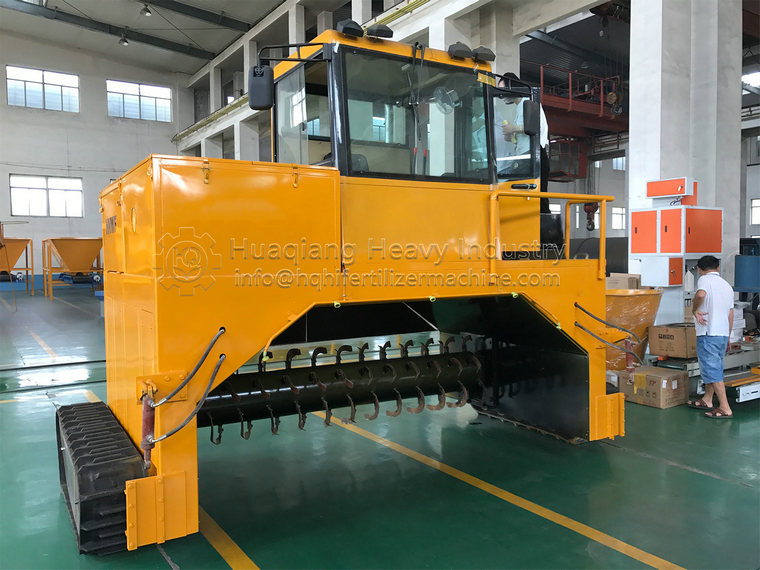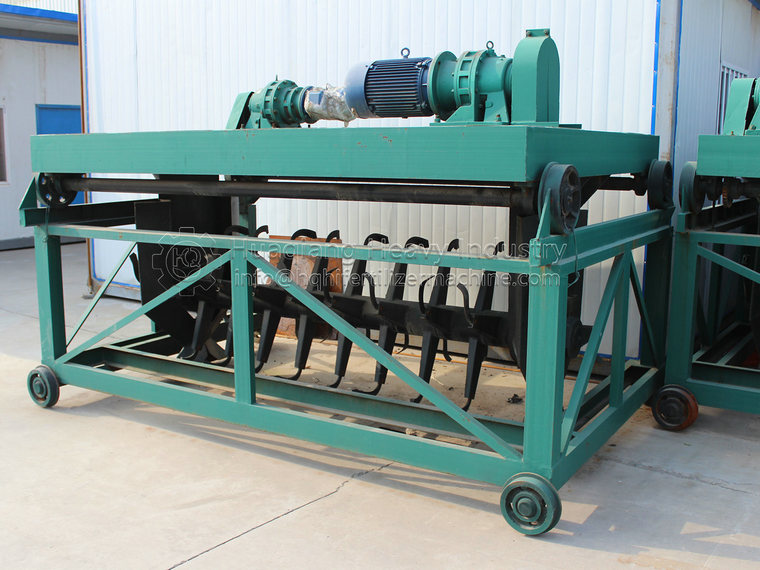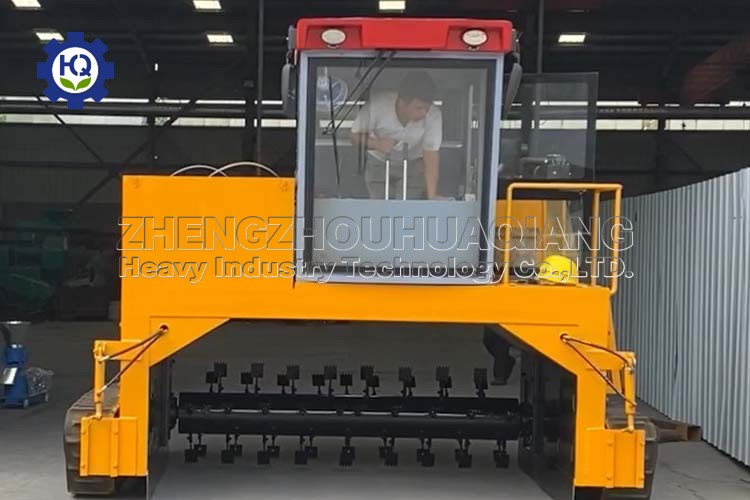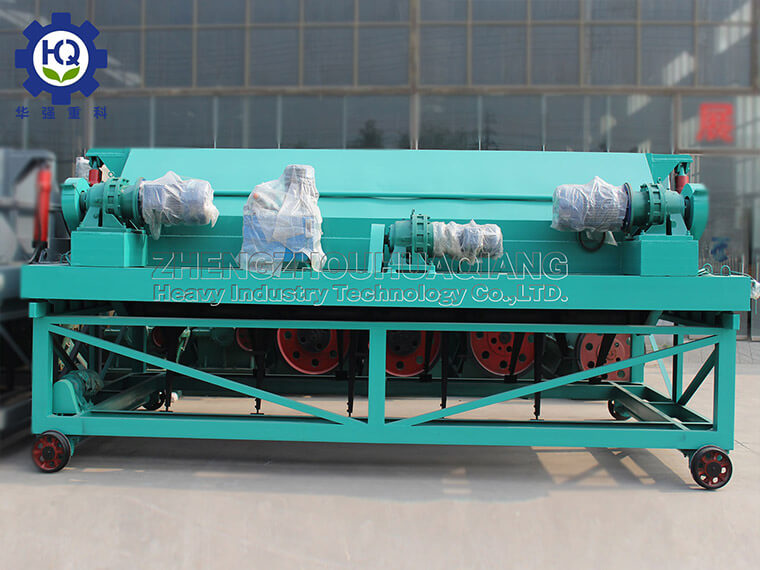Fermentation function of self-propelled organic fertilizer turning machine in organic fertilizer production line
In modern organic fertilizer production scenarios, the self-propelled organic fertilizer turning machine is like a dynamic dancer, bringing vitality and order to the fermentation of organic materials through its unique working process.
During the preparation stage of fermentation work, various organic materials such as poultry manure and waste crops gather together. The staff scientifically proportioned and constructed piles of materials waiting for fermentation, and spread fermentation agents to create an initial environment for fermentation.
The self-propelled organic fertilizer turning machine starts and, with its complete power drive system, flexibly and freely drives towards the material pile. Its self-propelled function gives it a high degree of maneuverability, without the need for additional traction, allowing it to freely shuttle between fermentation sites of different layouts and quickly reach the work site.
Arriving at the material pile, the flipping operation officially kicked off. The flipping device begins to operate under power transmission, penetrating deep into the interior of the material pile. These devices are ingeniously designed, some in the shape of rake teeth and some in the shape of shovels, capable of targeted operations based on material characteristics and fermentation needs. As the flipping device rotates and flips, the material is forcefully stirred and dispersed. The materials that have been in a closed state for a long time at the bottom are flipped to the surface and fully exposed to fresh air; The material rich in oxygen on the surface is rolled into the lower layer and fully fused with the internal material. This process not only achieves uniform mixing of materials, but also provides abundant oxygen and nutrients for microorganisms, greatly stimulating their activity and accelerating the fermentation reaction.
During the flipping process, the operator of the self-propelled organic fertilizer flipping machine can accurately adjust the machine’s travel speed, flipping depth, and frequency through the control panel. Flexibly adjust parameters based on fermentation process and material status to ensure optimal flipping effect. For example, in the early stage of fermentation, if the material is relatively fluffy, the speed of movement can be appropriately increased and the material can be shallowly flipped over; As fermentation progresses, the material gradually solidifies, slowing down the speed and increasing the depth of flipping to ensure the adequacy of fermentation.
The self-propelled organic fertilizer turning machine continuously operates back and forth between material piles, turning and stirring over and over again. Under its unremitting efforts, the organic components in the material are continuously decomposed and transformed by microorganisms. After a period of careful “care”, the originally messy organic materials gradually matured and became fertile and high-quality organic fertilizer.
The self-propelled organic fertilizer turning machine, with its flexible self-propelled performance and efficient turning process, has become the core force in the organic fertilizer fermentation process, driving the organic fertilizer industry steadily towards high efficiency and quality.







